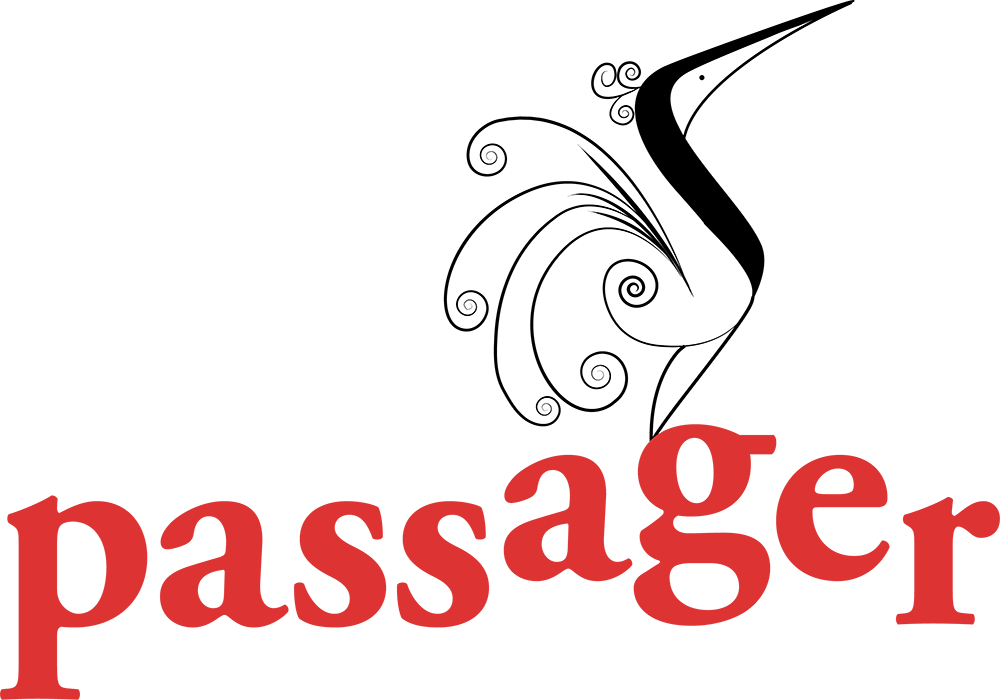The Great Chicago Fire



Art and divinity, featuring Chicago poets Ruth Goring, Patricia McMillen and Ruth Hoberman.
8 minutes
TRANSCRIPT
On the night of October 8, 1871, a fire started on DeKoven Street in Chicago or somewhere nearby. By the time firefighters got it under control two days later, it had burned three and a half square miles of the city, destroyed over 17,000 structures, killed about 300 people, and left over 100,000 people homeless. Legend has it that the fire started when Mrs. Catherine O’Leary’s cow kicked over a lantern, but whether it was that, some men that were drinking and gambling in the barn, or something else, the cause was never officially determined. To commemorate the 153rd anniversary of the Great Chicago Fire, three poems by Passager writers who live in Chicago.
Passager just published its 2024 Poetry Contest Issue. Our first poem tonight is from Passager’s 2019 Poetry Contest Issue. Chicagoan Ruth Goring said that when she wrote her poem “Textiles” she was working on collage art, using fabrics, threads, twine, along with tiles, handmade paper, wood pieces, and other odd objects. She said, “I was struck by the parallels between stitching and writing – and living! – and so this poem emerged from painstaking physical work of sewing and embroidering.”
The lake is a sheet of jade
under a sheet of clouds.
The air settles, alert as a watching animal.
You go still to hear blood
buzzing in your skull. Then wind rises,
its fingers rustle leaves.
Colors speak from white, words from silence,
you rock on haunches, folding language
over itself. Sentences are seams that pierce
and hold the garment of your life.
You rise and twirl this skirt, stitched
of that sky-blue dress when you were seven,
the river falling over rocks, the eggs
you found in dark edges of the shed,
the rope you jumped with sisters,
notebooks you filled, songs you learned.
A friend texts from another continent
to ask if God will hear her prayers
for animals. A calf on her farm is sick;
before you can answer, he dies.
How to weave the boy in a square
of darkness – his grandmother’s backyard –
felled by a storm of police bullets.
What of the swallowing of islands,
the bartered girls.
Some of your seams cut back and forth,
make drunken paths, then fold into long arcs,
miracles of mending. You set yellow
beside sadness, you stitch with words
into the silence that holds everything.
Ruth Goring’s poem “Textiles.” Ruth said the poem was part of her ongoing quest to hold joy and beauty in the context of personal and social pain.
Patricia McMillen wrote a series of what she called “Mrs. God” poems. She said, “I started them during my second marriage, as I tried to imagine the feminine consort of what then seemed to me a very masculine, imperfect, even needy, Divinity. She quickly demanded Mrs. Buddha, as a best friend, to distract her from endless housework, not to mention step-mothering a rather indulged only Son.” Here’s Patricia’s poem “Wu Ji.”
Mrs. Buddha says it’s where yin and yang
collide. a place of rest, balance. nothing,
everything needed is wu ji. white crane
spreading her wings: wu ji. Bob’s your uncle:
wu ji. Mrs. God sips tea, says nothing. wu ji.
gazing beyond the railing of the porch,
we watch the dead line up: one man in starched
white shirt, black sweater, pants, white leather
shoes. his wife beside him, dressed identically.
Meredith holding hands with Jane, who did
most of the driving until Meredith
last week crashed their Mazda to smithereens.
a menopausal woman in a Bob
Marley t-shirt. her adult son, slight, wearing
a brown hoodie. each of them wu ji
as evening falls. not quite wabi sabi,
though similar. as though having waked
slightly off-balance, lacking yang (or yin).
From Passager’s 2021 Poetry Contest Issue, “Wu Ji” by Chicagoan Patricia McMillen.
The first poem on this episode of Burning Bright was by Chicagoan Ruth Goring from Passager’s 2019 Poetry Contest Issue. This next poem is also from the 2019 Poetry Contest Issue, also by a Chicagoan named Ruth. Ruth Hoberman said, “After thirty-three years of marriage, my husband and I are glad to be together as we grow old, but continually surprised by how peculiar the process is. When he took his first art class a few years ago, I was amazed by the intensity of his concentration and the accuracy and beauty of his drawing. “Art Class for Adults” took shape as I watched him sketch.”
My husband is drawing his shoes. He learned
in class about cubes and cones,
spheres, and shadows. Now aglets, laces, insole, heel appear –
meticulous, solid, suspended mid-air
on his easel.
We’re not accustomed to aging. Past decades
went by with such cheerful,
inconsequential waves. Now my friends
have bad bones, canes, sick spouses,
and my own has turned introspective
as a tulip tight-wrapped
around darkness. Or graphite:
the black dust he draws
over textured paper then feathers
with a thumb, shaping shadow and light
till images emerge, like photographs rising
from a chemical bath.
I think of Venus on her half-shell, but Whitman
is more apt, bequeathing himself
to the dirt he loved. Look for me under your boot-soles,
he said. Now he waits
under the second shoe, the one
my husband hasn’t finished yet.
Ruth Hoberman’s poem “Art Class for Adults.” Ruth said her husband’s still taking art classes and continuing to improve, but still hasn’t finished that second shoe.
You can subscribe to and learn more about Passager and its commitment to writers over 50 at passagerbooks.com. Passager offers a 25% discount on the books and journal issues featured here on Burning Bright. Visit our website to see what’s on sale this week.
For Kendra, Mary, Christine, Rosanne, and the rest of the Passager staff, I’m Jon Shorr.



